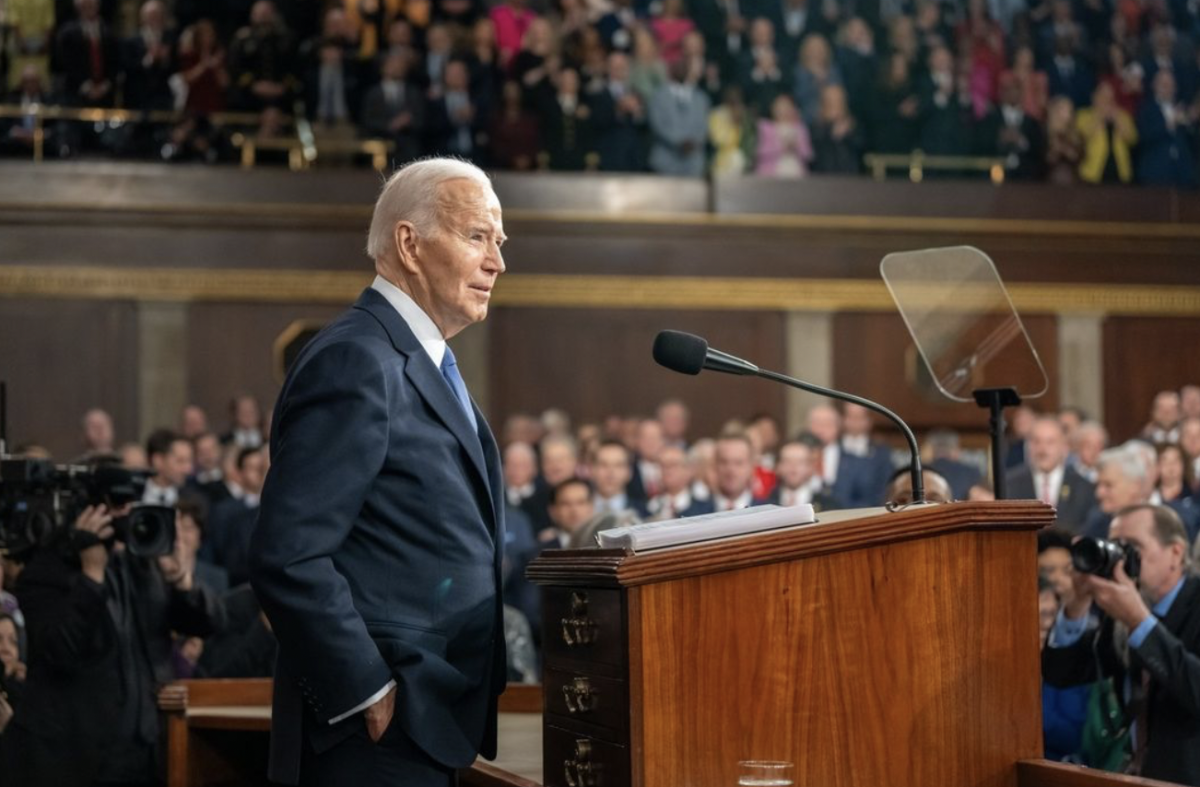Running largely unopposed, the incumbent President Joe Biden should be having a smooth primary season, but Muslim Americans, people of color and young Americans across the country are orchestrating a nationwide wake-up call to the sitting leader. Rather than vote for Biden, many American voters have taken to the polls to express their frustration with Biden’s handling of the Israel-Palestine conflict by voting “uncommitted” in the Democratic primary.
On Tuesday, Feb. 27, over 100,000 Michigan voters turned out to vote “uncommitted” in the Democratic presidential primary. A week later, Super Tuesday results revealed that thousands more Americans were on the same page as the 13% of Michigan voters who selected “uncommitted.” Of the 14 states that held Democratic Party primaries on Super Tuesday, seven states (Alabama, Colorado, Iowa, Massachusetts, Minnesota, North Carolina and Tennessee) had “uncommitted” or equivalent options on the ballot.
Minnesota and North Carolina had the highest percentage of “uncommitted” votes of the seven states with 18.9% and 12.7% of voters, respectively, opting into the protest vote. Another significant “uncommitted” turnout happened in Hawai’i on March 6. While only about 1,500 votes were cast, over 29% were for the “uncommitted” option.
While “uncommitted” has only secured 20 delegates so far this season, the protest movement has still made waves in political reporting, which is exactly the purpose of the uncommitted campaign. Voters were looking for a way to express their outrage at Biden and his support for Israel’s attacks on Gaza that didn’t require them to vote for his under-the-radar opponents, Dean Phillips and Marianne Williamson.
The uncommitted option provides voters with a low-risk opportunity to demonstrate concern, which feels increasingly rare in American politics. Unlike the general election, voting against Biden in the primary does not give any of the Republican candidates additional power. The uncommitted vote allows American citizens to feel like they have a voice and, more importantly, it’s one that Biden might actually listen to.
On Saturday, March 2, the United States airdropped a measly 38,000 meals to 2.3 million Palestinians facing “crisis levels of food insecurity,” according to the United Nations. On Sunday, less than a week after Michigan’s primary election, Vice President Kamala Harris made an announcement calling for an increase in the flow of aid to Palestinians under siege and for “an immediate ceasefire.” During his State of the Union address on Thursday, Biden announced plans to build a temporary pier to help deliver aid to people in Gaza. While many people have found the moves lackluster in light of the U.S.’s continued funding of the Israeli military, these moves mark a significant shift in attitude from the Biden administration on the Israel-Palestine conflict just a few days after the “vote uncommitted” movement began making headlines.
It is not clear that the uncommitted votes have had a direct impact on the Biden administration’s shifting attitude, nor is it clear that a change in policy will actually accompany the change in rhetoric, but these possibilities cannot be entirely ruled out. The uncommitted vote is making headlines, and leaders in the Democratic Party know this.
While American news outlets fail to cover protests happening right outside their headquarters, they seem to have less qualms about publishing articles centered around the uncommitted campaign. Since the beginning of the war, prominent American news outlets, including the New York Times, have come under fire for their lack of coverage of the Palestinian struggle and the U.S. protest movement. In comparison, the attention that the uncommitted campaign has received sheds light on American dissatisfaction.
American voters are passionate about this issue, and they want to feel heard. The uncommitted vote is perhaps the best way to demand more from the Biden administration, which becomes increasingly crucial with each passing day of this election year. However, liberal critics of the uncommitted movement fear what this might mean for the general election. Will “uncommitted” voters show up to the polls to vote for Biden this fall? If Biden fails to win them over through policy change, will that guarantee a Trump victory?
These are valuable questions, but will hopefully prove to be irrelevant ones. During the 2012 presidential election, former President Barack Obama faced thousands of uncommitted votes, even taking home less than 60% of the primary votes in states like Kentucky and West Virginia. Obama still defeated Mitt Romney by 126 electoral votes in the general election. Assuming that Biden manages to take the hint and adjust his policies, there’s an even greater chance of a similar result.
It’s also important to remember that the protest vote is specifically tied to the Israel-Palestine conflict. Biden’s shoe-in opponent, former President Donald Trump, has also been harsh on the Palestinian struggle, at least in his words. Just last week, Trump said that Israel needs to “finish the problem” in Gaza, a turn of phrase that rings eerily similar to signs held up during a pro-Israel march in Washington, D.C., last fall. People at the rally repeated chants of “no cease-fire” and held signs with genocidal implications including one reading “Let Israel Finish the Job.”
Americans voting “uncommitted” in their states’ primary elections are aware enough to know about the campaign and dedicated enough to make their voices heard. They are paying attention to the news cycle. They know where Biden stands on the issue, and they also know where Trump stands. When the general election rolls around, voters are going to do whatever will bring them one step closer to a cease-fire; chances are, that step will be voting for Biden. In the meantime, pro-Palestinian Americans should keep casting their votes against Biden and making their voices heard while they have the chance. The public needs to continue finding ways to push Biden’s buttons without punishing themselves in the process.
Allison Schneider, FCRH ’26, is an English major from Indianapolis, Ind.








































































































































































































